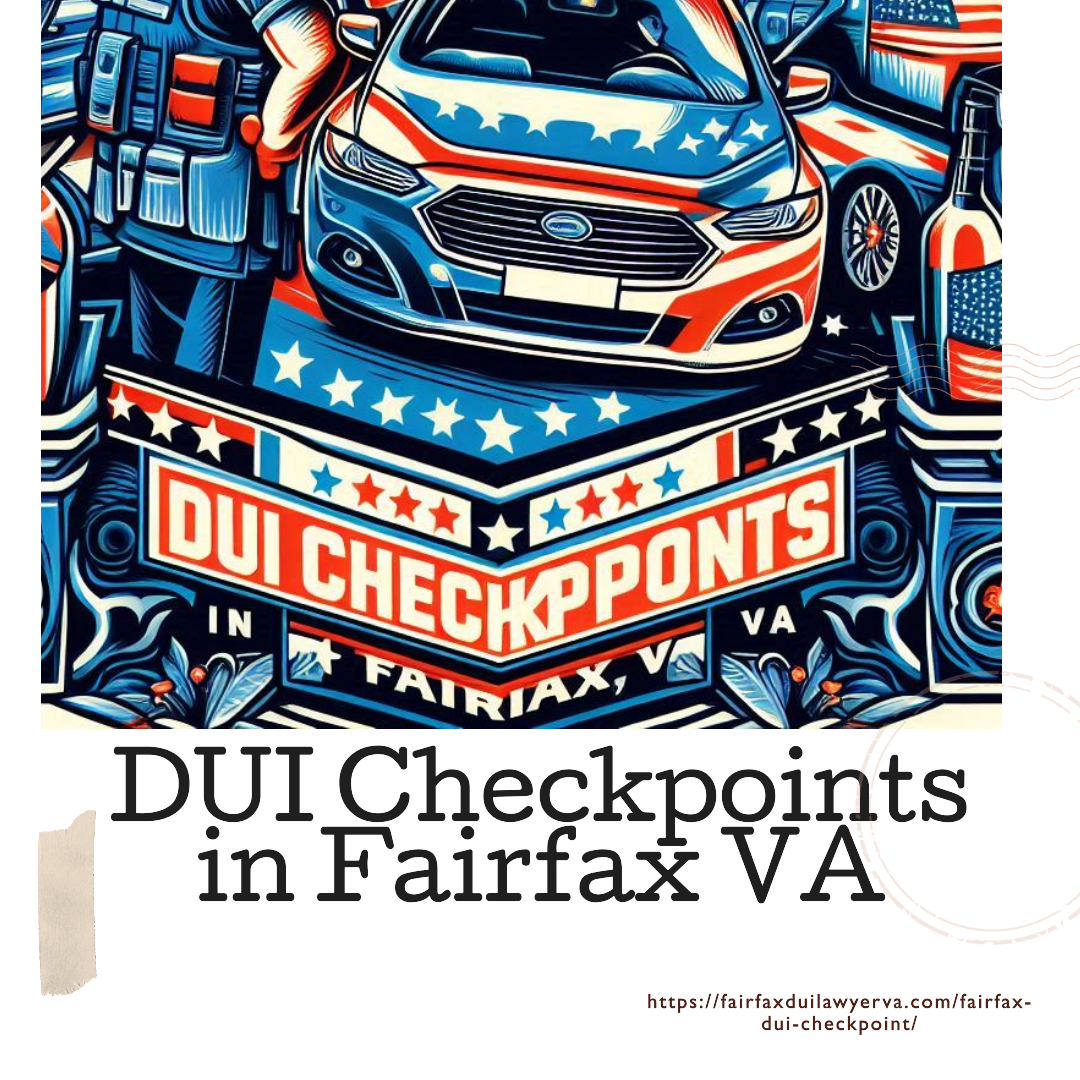As the year 2024 unfolds, Fairfax law enforcement continues its commitment to road safety by employing DUI checkpoints. These sobriety checkpoints aim to deter impaired driving and reduce alcohol-related accidents, ensuring the well-being of all road users. While their primary goal is to protect lives, DUI checkpoints often raise questions among drivers regarding legality, procedure, and personal rights. This article provides an in-depth look at what drivers in Fairfax need to know about DUI checkpoints in Fairfax VA 2024, including their purpose, operation, and how to navigate them responsibly.
What Are DUI Checkpoints?
DUI checkpoints, also known as sobriety checkpoints, are temporary roadblocks set up by law enforcement to identify and deter impaired drivers. Officers stop vehicles in a systematic manner such as every third or fifth car to check for signs of intoxication or impairment. These signs can include slurred speech, the smell of alcohol, or erratic behavior. If officers suspect a driver is under the influence, they may conduct further evaluations, such as field sobriety tests or breathalyzer tests.
In Fairfax, these checkpoints are scheduled and publicized in advance, as required by Virginia state law. This transparency not only ensures compliance with legal standards but also serves as a deterrent, encouraging drivers to make responsible decisions before getting behind the wheel.
The Legal Framework of DUI Checkpoints in Virginia
Virginia is one of the states that allows DUI checkpoints under strict legal guidelines. To ensure these checkpoints do not violate constitutional rights, law enforcement must adhere to specific rules:
- Advanced Public Notification: DUI checkpoints must be announced ahead of time, often through media releases or local law enforcement websites. This reduces claims of entrapment.
- Non-Discriminatory Procedures: Vehicles must be stopped according to a predetermined pattern, such as stopping every fourth car, to avoid profiling or arbitrary stops.
- Minimal Intrusion: Checkpoints are designed to be brief, ensuring minimal inconvenience for compliant drivers.
- Clearly Marked Locations: Signs, lights, and uniformed officers must make the checkpoint’s purpose evident to approaching drivers.
These legal safeguards balance public safety with individual rights, ensuring that DUI checkpoints remain a lawful and effective tool for preventing impaired driving.
How DUI Checkpoints Affect Drivers
DUI checkpoints serve multiple purposes beyond catching impaired drivers. They act as a visible deterrent, reminding drivers of the risks and consequences of driving under the influence. Additionally, they promote awareness about the importance of road safety and responsible driving behavior.
For drivers, encountering a DUI checkpoint can be a mix of inconvenience and unease. However, by understanding the process and knowing your rights, you can navigate these situations confidently. Remember that checkpoints are not meant to penalize sober drivers but to prevent potential harm caused by impaired individuals.
Your Rights and Responsibilities at a DUI Checkpoint
When approaching a DUI checkpoint, drivers in Fairfax should keep the following rights and responsibilities in mind:
- Comply with Instructions: Drivers are required to stop and provide basic information such as a driver’s license, vehicle registration, and proof of insurance. Failure to comply can result in legal consequences.
- Right to Remain Silent: While you must provide identification, you are not obligated to answer questions about your activities or whether you have consumed alcohol.
- Field Sobriety and Breath Tests: If an officer suspects impairment, they may request a field sobriety test or a preliminary breath test. Refusal to comply could result in penalties under Virginia’s implied consent laws.
- Legal Avoidance: Drivers have the right to avoid a checkpoint by turning around or taking an alternate route, provided they do so legally without violating traffic laws. However, suspicious behavior may still attract police attention.
Understanding these rights can help drivers handle DUI checkpoints with confidence while staying within the boundaries of the law.
Preparing for DUI Checkpoints in 2024
As DUI checkpoints remain a cornerstone of Fairfax’s road safety initiatives, it’s important for drivers to adopt proactive measures. Here are some tips to stay safe and compliant:
- Plan Ahead: If you plan to drink, arrange for a designated driver, rideshare service, or public transportation to avoid the risk of impaired driving.
- Stay Informed: Keep an eye on public announcements from Fairfax law enforcement about scheduled DUI checkpoints.
- Remain Calm: Approach checkpoints calmly and follow officers’ instructions. Have your documents ready to present upon request.
- Know the Law: Familiarize yourself with Virginia’s DUI laws and checkpoint procedures to avoid unnecessary confusion or anxiety.
By preparing ahead of time, drivers can navigate checkpoints smoothly and contribute to the broader goal of safer roads in Fairfax.
Conclusion
DUI checkpoints in Fairfax VA are an integral part of Fairfax’s efforts to promote road safety in 2024. While they may occasionally inconvenience drivers, their role in deterring impaired driving and preventing accidents cannot be overstated. By understanding the legal framework, knowing your rights, and adopting responsible driving habits, you can approach these checkpoints with confidence. Ultimately, DUI checkpoints serve as a reminder to prioritize safety not just for yourself but for everyone sharing the road. In doing so, we can collectively support a safer and more responsible driving culture in Fairfax.





Comments